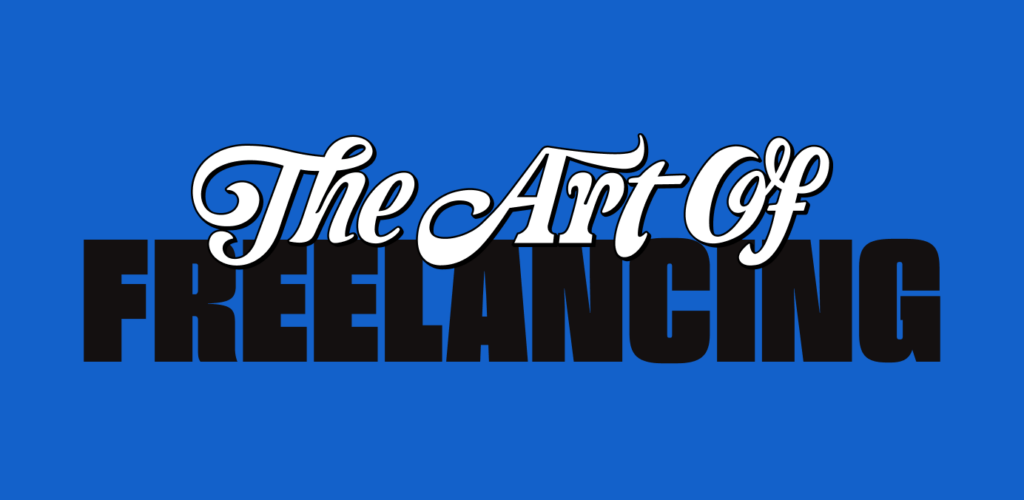The Art of Freelancing
Freelancing is a whole different beast in the podcast industry. For me, pursuing independent work after a career of full-time roles at places like NPR, WNYC, Stitcher, and Pineapple Street was empowering, yet daunting. While I was craving the flexibility that would fit my personal needs and creative goals, I quickly realized there’s no guidebook to freelancing in the audio world.
And with the unfortunate and overwhelming number of layoffs in the industry over the past year, I’ve had a number of colleagues reaching out to me for tips. Thankfully, the friends I contacted who took the same leap of faith shared meaningful information that I continue to pass along.
Here are four guidelines to help start your freelance journey off on the right foot:
1. Connect with networking circles—and form your own.
From the start of my freelance career, I was recommended some useful resources to make me feel more connected to folks on the same grind. Budgeting money to join organizations such as the Association of Independents in Radio (AIR) and the Freelance Solidarity Project have been essential for keeping my head above water. They give you access to lots of resources, like talent directories, workshops, and community events.
Joining active, audio-focused Google Groups like Radio Angeleno, PublicRadioNYC, POC In Audio, Gaydio, and Ladio has given me access to tape syncs, day gigs, and contract jobs that sometimes don’t get posted on company and job sites. Also, checking in one-on-one with fellow freelancers each month has been so valuable for my career. We trade tips on all sorts of things, from what roles companies are looking to fill, to what pitfalls to avoid when it comes to negotiating contracts and payment terms.
2. Determine a freelance rate that’s reasonable for you.
This can be tricky depending on your skill level and if you’re used to working salaried jobs. Thankfully, resources like AIR have rate guides (for both public radio and for-profit gigs) to help out. You can come to a starting point for your freelance rate by breaking down your last job’s salary into a per-hour fee, then use AIR’s day rate calculator.
AIR also recommends that, in general, “independent contractors should expect to charge at least 30 percent more than peers doing comparable work on payroll.” This accounts for a number of expenses including retirement contributions, payroll tax, health insurance, and equipment acquisition and maintenance. I can’t stress enough that sharing information about rates among freelancers will go a long way in future negotiations with clients.
3. Make sure the payment terms are clear.
As a freelancer, it’s been quite a mental shift to go from getting paid bi-weekly by one company for several years, to various times from several companies. In my experience, every company I’ve worked with pays freelancers differently: hourly, daily, weekly, bi-weekly, monthly, by deliverables, et cetera. So figure out what works best for you and don’t be afraid to negotiate.
While I understand why companies want to pay freelancers by deliverables, in those cases any delays in the production process can affect when you get paid. Earlier this year when the market was slow, I desperately took on a gig for a show that was right in my wheelhouse but paid in deliverables. The launch date got pushed back three months because of some mishaps between the clients. Let’s just say I was back on the job market very fast.
4. Set boundaries and exercise freedom.
Don’t say yes to everything. I know this sounds implausible if you just lost your job and need to make money quickly, but taking on a job that’s a bad fit can be even worse than not taking one at all. What if the client asks you to take on two roles for the price of one—like, say, producer and engineer? And if you’ve heard unfavorable things about said client from trusted sources, do you ignore that advice?
When you land a job, be upfront with the client about your situation. Inform them of other gigs you may be working, what days you’re available to work and meet, and what days you have to travel or plan to use for vacation. No one should have to work every week of the year. Freelancers deserve rest, too!
![]()
John Asante is an award-winning, independent podcast showrunner, producer, and consultant based in Los Angeles. He has produced over two-dozen programs for the likes of NPR, WNYC, Stitcher, Neon Hum Media, and Pineapple Street Studios.









